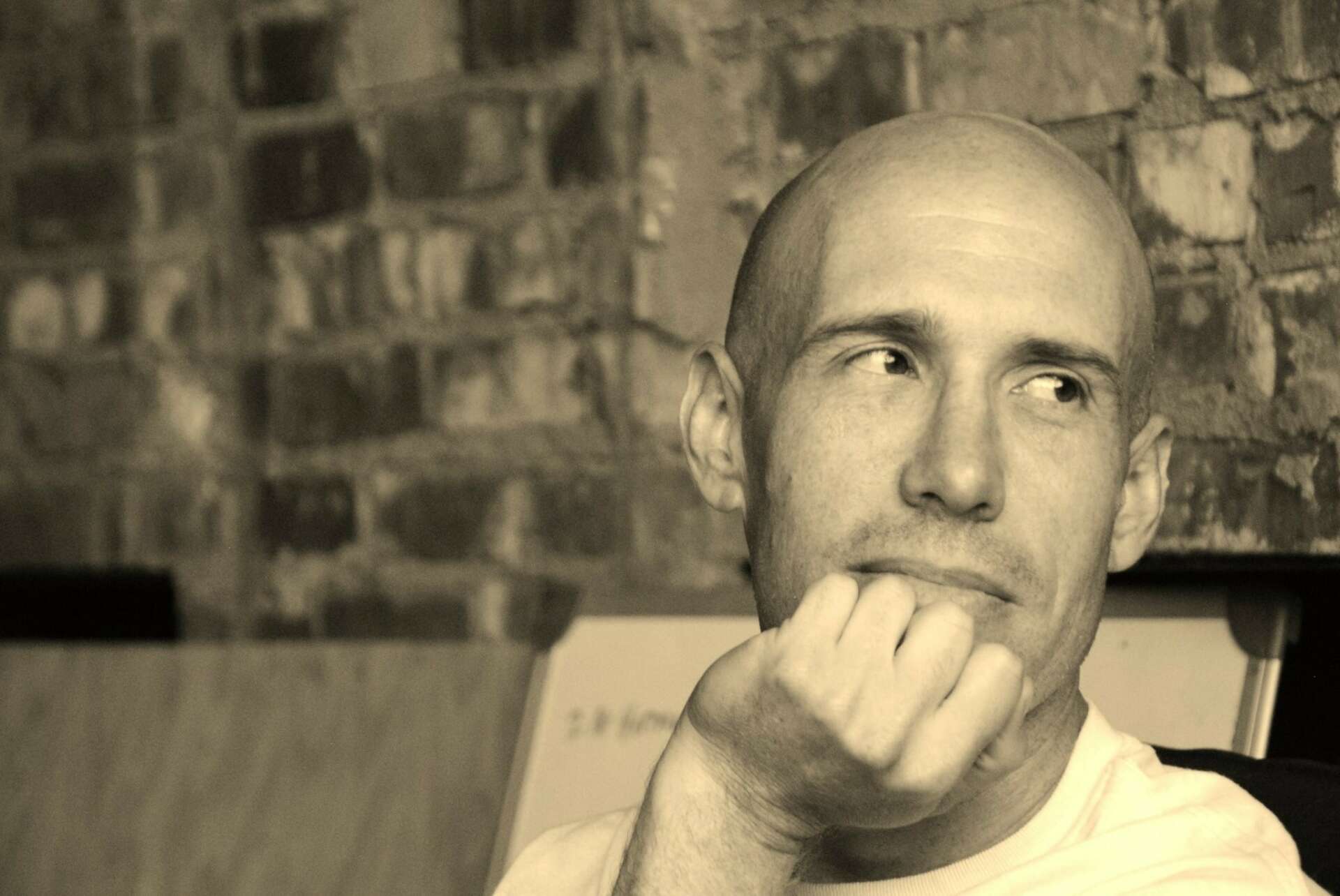We were lucky to catch up with Charles J. Martin recently and have shared our conversation below.
Charles J., appreciate you joining us today. Let’s kick things off with your mission – what is it and what’s the story behind why it’s your mission?
Literati Press Comics & Novels formed to give a platform for unique storytellers telling innovative stories in one of the most overlooked markets in the country. I grew up in Oklahoma and always thought I would have to leave to have any success as a writer, yet fate intervened. I had children right after college and family ties held me inside the state long enough for me to finally realize the potential of my home state. I’d been so entranced by the auras of New York City, Los Angeles, Austin, and London that I couldn’t see what was happening right around me until a part time job in journalism thrust me into Oklahoma City’s vibrant subcultures. From there I began volunteering for any crazy art happening I can find, eventually pulled into a brash group of creatives named Rampage Artists who threw large scale events to fund national, multi-discipline touring groups.
Inspired by the fashion designers, musicians, dancers, and other artistic renegades refusing to let their geography hold them back, I founded Literati Press in 2010 to give bold writers these same exciting avenues to the wider world. After over a decade of publishing a wide array of unique voices and starting our own bookstore in the Paseo Arts District, we continue looking for ways to mentor writers and illustrators so that the next generation of storytellers have a slightly easier path and Oklahoma can develop into something more than just a flyover state.
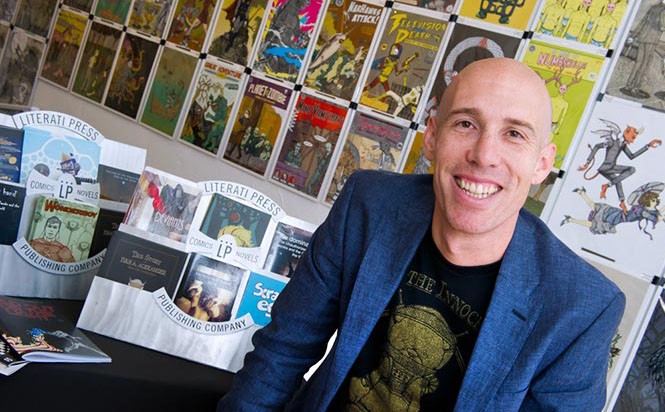
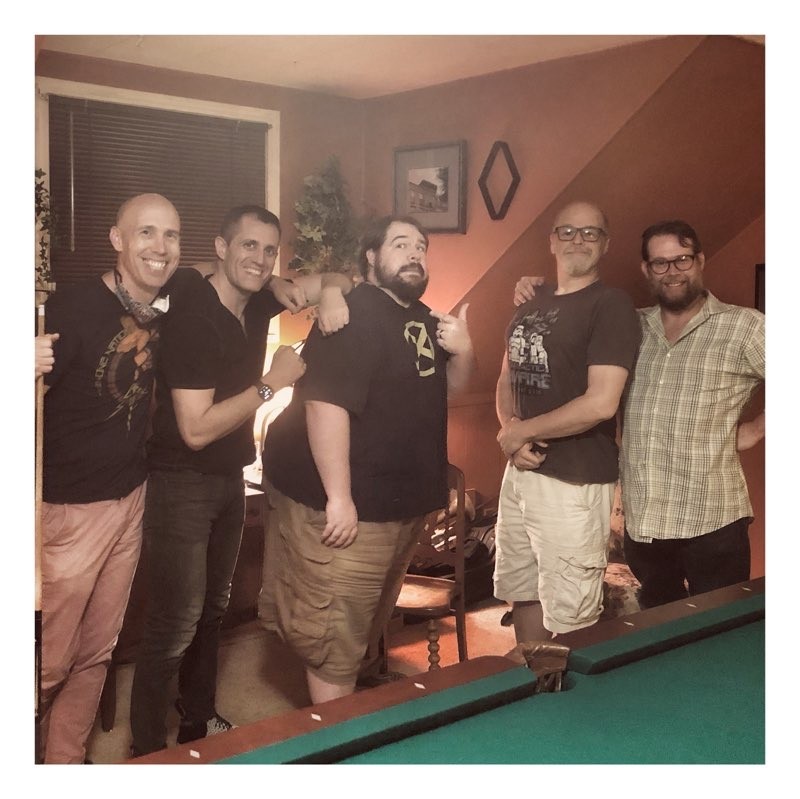
Awesome – so before we get into the rest of our questions, can you briefly introduce yourself to our readers.
I’m the founder and Creative Director of Literati Press Comics & Novels, a publishing company and bookshop located in the Paseo Arts District in Oklahoma City. I am the author of many novels and comic book series. Glamorella’s Daughter, We Promised Utopia, and Uforika are my latest projects and are currently ongoing. Though I cut my teeth on fiction writing, our success with comic book publishing has opened up a lot of interesting projects in the field since sequential art is more respected than ever by publishing companies, arts organizations, and the wider public. Yet, few people are quite sure how to make a comic, so I’ve found myself taking on a number of fun side projects bringing comics to life for nonprofit organizations and other outside collaborators. We’ve also been getting better at explaining that comics have the unique blend of visuals and traditional storytelling like film and TV, yet is far cheaper to produce and, if told well, has a longer shelf life. As we develop out more freelance opportunities for comic book freelancers in Oklahoma, then we are able to give those same artists and writers more opportunity to live and work in our state while developing their own stories. Every market in the world, no matter how popular comics may be, struggles to find ways to pay artists to create comics. We are hoping by developing a more cohesive ecosystem of freelance opportunities, mentorship, and publishing platforms, we can develop Oklahoma into a thriving hub of comic book creation.
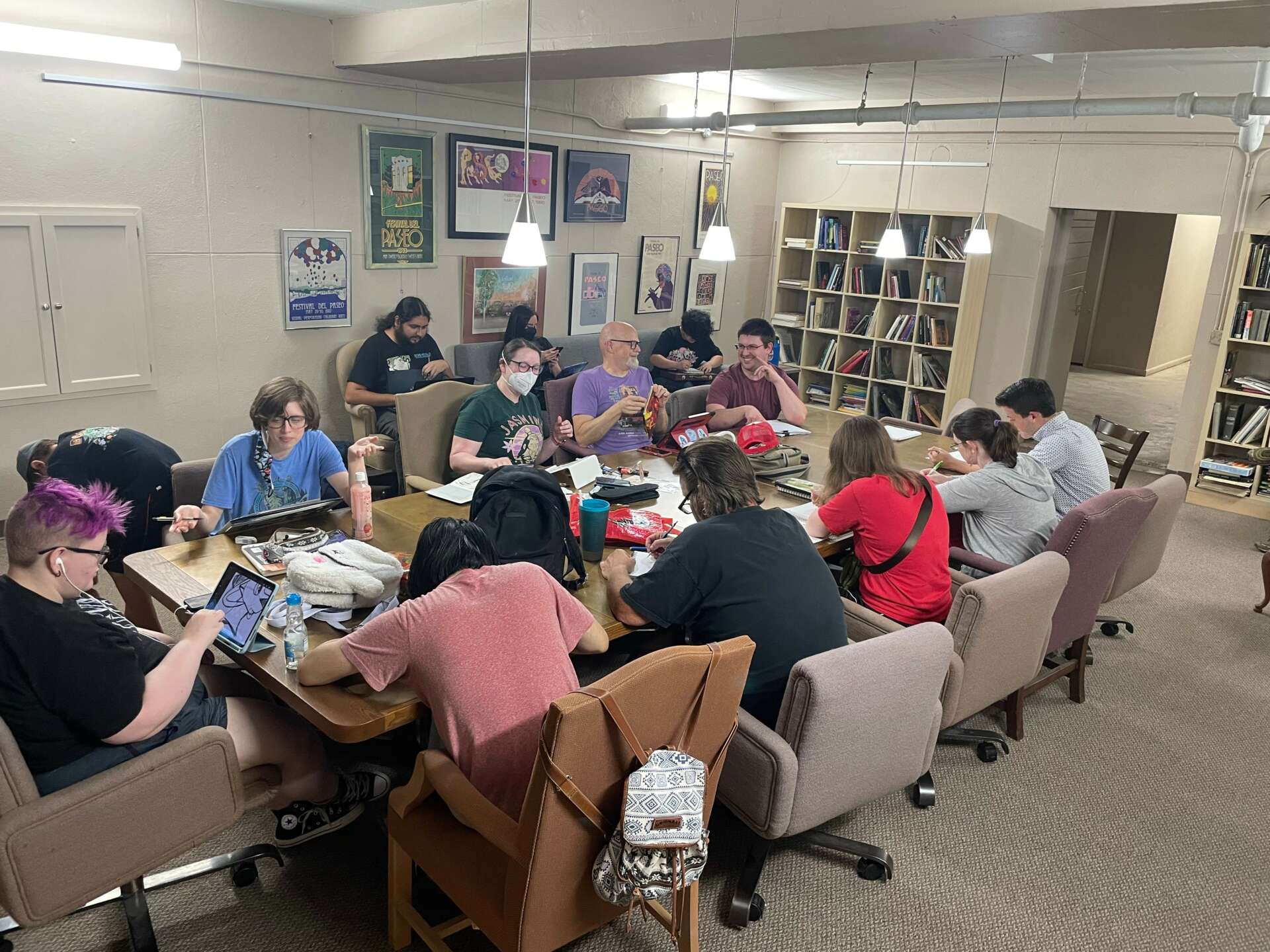
What’s a lesson you had to unlearn and what’s the backstory?
Literati Press’s first breakthrough comic, Natasha Alterici’s Heathen, exploded onto the scene in 2015 and was named Best Indie Comic by Comixology, but its growth far outpaced what I could keep up with on my own and we soon realized we would have to move it to a larger publishing company if we hoped for it to reach it’s full potential. I viewed this as a significant loss on our part and, though I was happy that Heathen had a great life at Vault Comics, I didn’t ever want to lose another comic again because it was too successful. I recruited a team of other comic book professionals to start discussing how to build the infrastructure of the company so that we could support a title regardless of its level of success. I was also a single father and a waiter, so investment was and continues to be a challenge. Publishing is a hard enough industry to get investors excited about throwing money around, partially because the pathways to success in the industry are difficult to find and predict, but mostly it’s a fairly static industry where innovation is rare. We are, essentially, selling books in the same way we’ve always sold books.
Add onto that comics are still largely misidentified as “kid’s stuff.” Needless to say, if we were going to build it, we would have to figure out how to pay for it first. Yet, we scraped money and favors together and rebuilt Literati Press as a more durable brand. In 2020 and 2021, we had a string of modest successes with The Black-Jack Demon, Glamorella’s Daughter, and We Promised Utopia showing that our new model was working. Then came Rez Detectives, which way outperformed expectations and we simply couldn’t print and fulfill fast enough. We were right back to where we were with Heathen.
Being on the other side of two breakthrough successes, I was pretty open to new solutions while on a trip to a children’s book festival earlier this year. There I saw the tremendous hunger for graphic novels from larger publishers, but a shortage of material because sequential art are really hard to produce. There I had a bit of a revelation that we should start thinking beyond the traditional publishing model. We are great at making content. Due to our small staff, we are only okay at marketing and fulfillment, so why were we killing ourselves when there are hundreds of larger publishers desperate for what we are able to produce? So, the next step in the ongoing evolution of Literati Press is to figure out how to serve as a book packaging company for those projects who have the potential to sell beyond our capacity to fulfill.
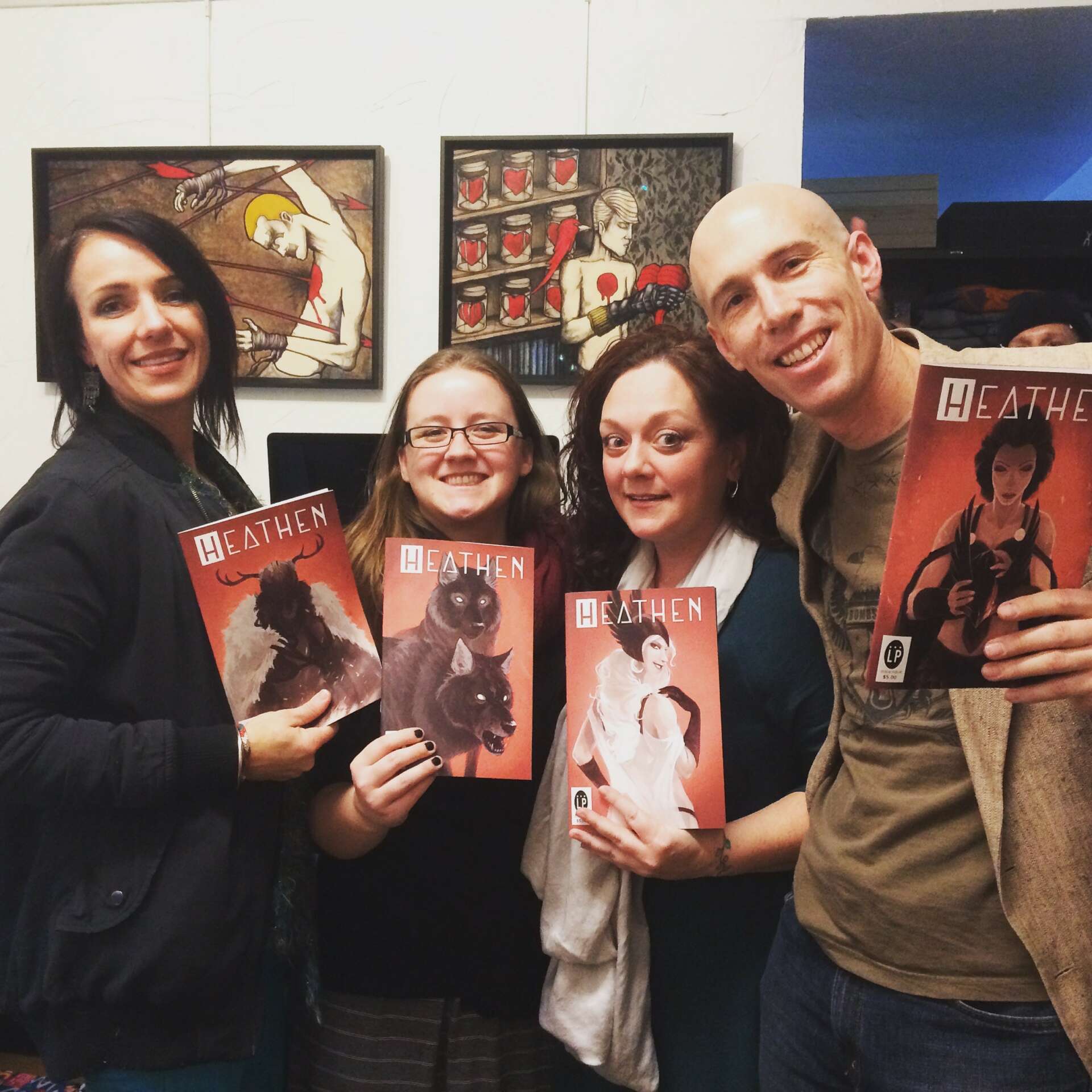
Looking back, are there any resources you wish you knew about earlier in your creative journey?
I was fortunate to get a job at a book company in Austin, allowing me to see the industry from the inside and gaining lessons I could take back to Literati Press. I wish I’d been taught far more about production during my college years and I can now see how it pays to have a team of specialists whose sole mission is to take digital files, get them printed on paper, then get that paper bound and delivered around the world. Most writers won’t see that part of the industry, but it’s been incredibly helpful in my own creative development that I firmly believe that it should be a mandatory part of any creative writing program. Thinking about my book’s complex journey from my computer screen to my readers illuminates so much about how I should be packaging my stories moving forward. Jobs in the book industry are hard to come by, but even serving in a print shop in one the many careers most artists have in their lives could be really fruitful. Working with paper, understanding how different stocks feel, how they take on ink, and how comfortable they are to read should be as fundamental as artists understanding their canvases.
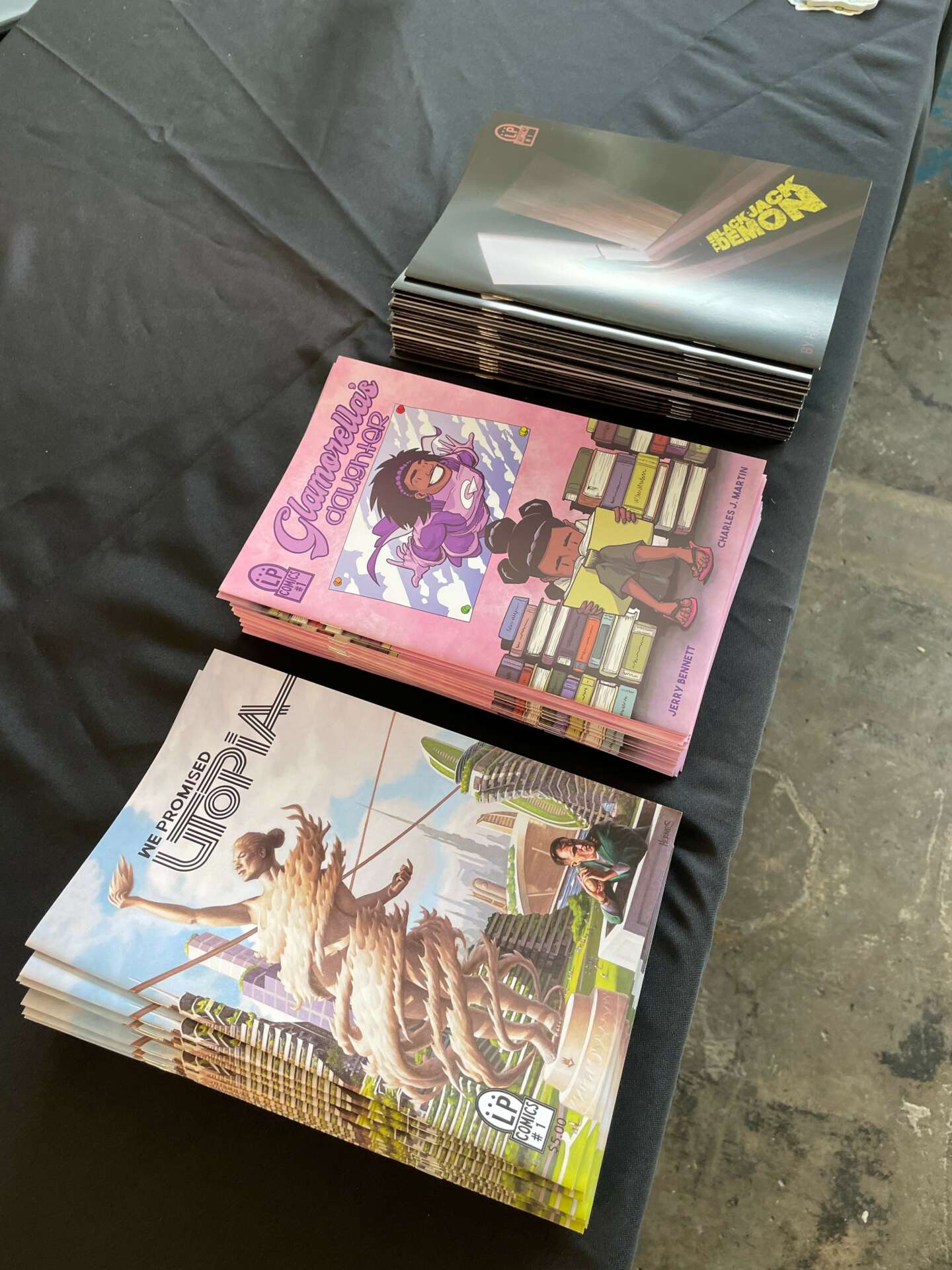
Contact Info:
- Website: literatipressok.com
- Instagram: https://www.instagram.com/cm_and_ww/
- Facebook: https://www.facebook.com/CharlesJMartinLP/
- Linkedin: https://www.linkedin.com/in/charlesjmartin/
- Twitter: https://twitter.com/CM_and_WW
Image Credits
Jack Fowler, head shot Rest my phone


